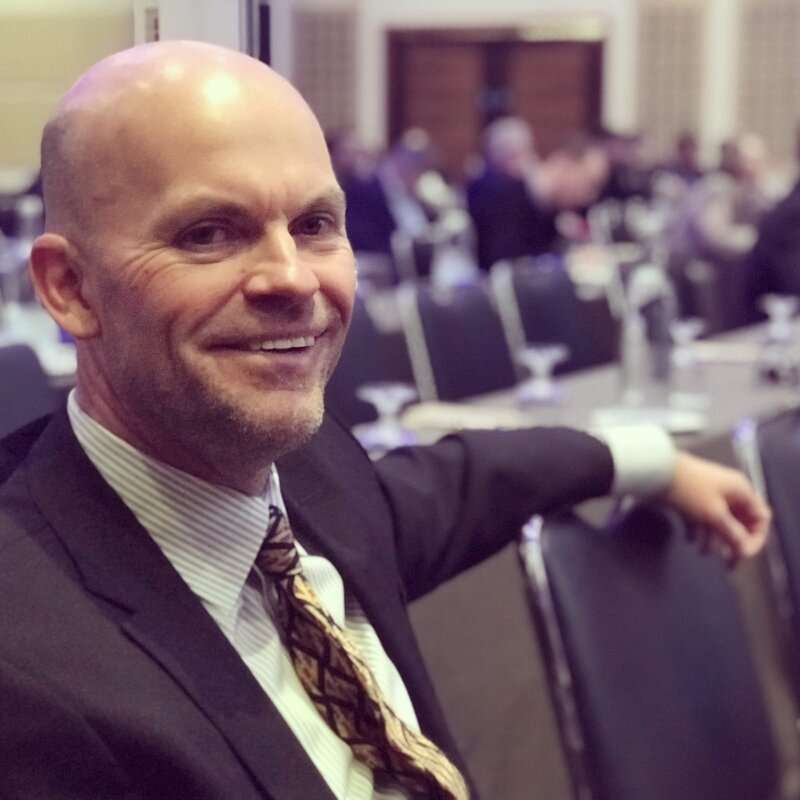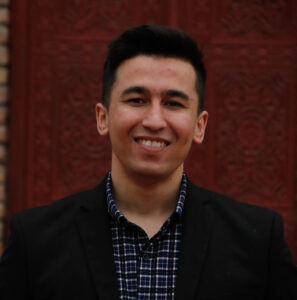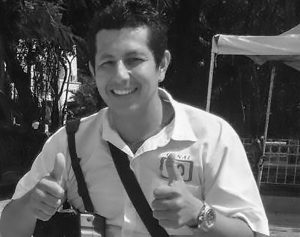Last month saw the return to London of the OffshoreAlert conference on intelligence, investigations, and recovery in high-value international finance after the enforced break of over two years due to the Covid pandemic.

The conference brings together lawyers, fraud investigators, bankers, regulators, law enforcement, journalists and victims from all over the world to meet, learn, and conduct business.
OffshoreAlert also publishes proprietary investigative news and documents that are designed to alert readers to red flags in international business, including civil lawsuits, criminal indictments, and regulatory actions. The firm’s specialty is exposing investment fraud while it’s in progress.
We spoke to the founder and driving force behind OffshoreAlert, David Marchant, an investigative journalist and businessman.
English-born Marchant launched OffshoreAlert in 1997 in Miami after spending six years working in Bermuda. OffshoreAlert holds several conferences annually, in-person in Miami, London, and, before Covid struck, São Paulo, Brazil, with a first Asia conference scheduled for 2024, and a virtual conference, the next one of which will be held on the 5-9th of December.
The virtual conference is customized for the medium and one of the innovations is global Speed Networking, which will randomly pair attendees together for up to six minutes per time. For next month’s conference, he’s trying to persuade well-known intelligence-industry people like Edward Snowden and Chelsea Manning to participate.
Marchant’s favourite description of his conferences is a quote that an attendee gave for a profile in The Wall Street Journal in 2009, when Washington DC attorney Jack Blum said: “It’s like that famous bar in ‘Star Wars,’ where they all come together — the good guys, the bad guys, the seriously guilty – and they all exchange information on neutral territory.”
Whilst he never turns down attendees, he has rejected some potential sponsors because he considered them to be too dubious. When it comes to attendees, though, everybody is welcome. “Maybe some crooks will reform after attending,” he says. “You never know.”
I asked him what drove him and his response was very direct. “I worked in Bermuda for six years before I got kicked out because my work was deemed to be bad for the jurisdiction. The authorities were no longer prepared to tolerate my investigations and told my representative that ‘Marchant won’t be given another work permit under any circumstances’.
“My attitude was “I’ll show you”. So I moved to Miami, where I could operate free of such small-minded, protectionist interference, and set up OffshoreAlert, one of whose main areas of coverage is none other than Bermuda’s international sector. In those early days, I would expose any fraud I came across, regardless of the consequences. As a result, I started getting sued for libel a lot – at one stage I was defending two or three lawsuits at the same time – and there were a few years where our own legal fees exceeded the company’s entire revenue. Clearly, that’s unsustainable as a long-term business model so I had to figure out how to make bad people afraid to sue me. The solution I came up with was to help law enforcement put the plaintiffs in prison and assist asset recovery attorneys in freezing and seizing their assets.
“The first person to sue me and OffshoreAlert for libel – an American, Panama-based CPA called Marc Harris – was later convicted of fraud and money laundering at federal court in Florida in 2003 and sentenced to 17 years in prison. More recently, in August of this year, a former English policeman and lawyer, Timothy Schools, was sentenced to 14 years in prison in London after being found guilty of fraud and money laundering. Just like I helped the U.S. IRS investigate Marc Harris, I provided a witness statement to the U.K.’s Serious Fraud Office to help with its prosecution of Timothy Schools.
“It’s not enough to help put libel plaintiffs in prison. You also have to let everyone know what you did in order to send out the message ‘Sue us at your peril’. As a result, OffshoreAlert and I are seldom sued any more. We’ve essentially cowered them into submission, which is as it should be.
“We also humiliate them and their enablers on a free ‘Anti-Testimonials’ section of our website that contains some of the insults and threats – including death threats – we have received over the years. In my line of work, the greatest compliment is a bad person saying ‘I hate you’, so we publicize this.”
Marchant conducts his own research, writes and edits his own stories, and relies on his own knowledge of defamation law prior to publication, rather than seek opinions of legal counsel. “I live and die by my own sword and I’m comfortable with that,” he says. “I recognize the potential dangers of this but I’m disciplined enough to be self-critical and unemotional when assessing my own work.”
He takes a lot of pride in what he does and has strong opinions about the industry he covers. For instance, he is damning about crypto. “Whatever you think about the merits of the underlying technology, there’s no denying that the crypto industry is rife with fraud, to a degree that I’ve never seen before. The crypto industry will inevitably collapse, in my opinion. For example, I expect the price of Bitcoin to eventually crash to zero or virtually zero. Crypto seems to make otherwise rational people lose their marbles. I find it particularly fascinating that even a lot of fraud investigators don’t seem to understand how utterly crap the industry is. Crypto seems to comprise two different groups, outright crooks who have latched on to ‘the next best thing’ in order to part the gullible from their money and what I like to call ‘well-intentioned bumpkins’, most of whom are young, arrogant, and clueless about anything other than programming.”
This view has been radically enhanced by the recent collapse of the Bahamas based Crypto firm called FTX with losses of around $9 billion and with cash shown to be arounf $900,000.00
When it comes to Russia, he believes that economic sanctions will eventually cripple the country’s economy and lead to Putin’s demise. “As with frauds, I can never say when a collapse will exactly happen but I can say with a degree of certainty that it will actually happen.”
Anecdotally, he says the most scared he’s ever been as a journalist was in the late 1990s, shortly after launching OffshoreAlert, when a New York-based, Russian fraudster threatened him. “I didn’t sleep at my home for a few days and, when I turned on my car’s ignition, I was half-expecting a bomb to go off. My level of paranoia was pathetic. It forced me to think about whether I had the temperament to continue exposing frauds.
I processed all of the issues and ultimately decided ‘Fuck it, I love what I do’. I haven’t looked back since. The crook who issued the threat, by the way, later went to prison!”.
Asked about fraud in the U.K., he replied: “ The U.K. is a crook’s dream jurisdiction. The country has a good reputation so that fraudsters whose firms are domiciled there can exploit when persuading victims to part with their money, yet the country is very poor to the point of being pathetic when it comes to regulatory or criminal enforcement.
If I were to convert to the other team and perpetrate a scam, I can think of no other better country to base my operations. Even the libel laws are in favour of the crooks, therefore deterring investigative journalists from exposing their activities. It’s all very different to the U.S., where I live and work. While far from perfect, the U.S. is nevertheless light years ahead of any other country in terms of holding financial miscreants responsible for their actions and doing so transparently, meaning that it’s typically easy for journalists to access court records and regulatory filings.
Asked if there was anything else he would rather do, Marchant replied: “I can’t think of anything. What I do for a living suits who I am as a person. My personality and character traits that might be considered flaws in other types of employment are suited to conducting investigations. I’m very single-minded and determined, I don’t work well with teams or groups, and I’m willing to make extreme sacrifices to my social and financial health to defend a principle.”



